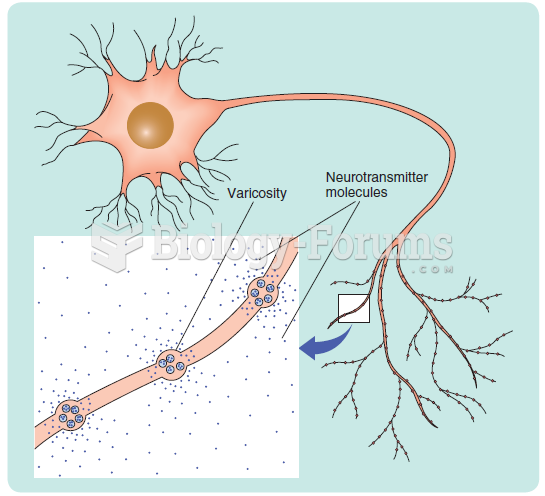|
|
|
Fungal nail infections account for up to 30% of all skin infections. They affect 5% of the general population—mostly people over the age of 70.
If all the neurons in the human body were lined up, they would stretch more than 600 miles.
Many supplement containers do not even contain what their labels say. There are many documented reports of products containing much less, or more, that what is listed on their labels. They may also contain undisclosed prescription drugs and even contaminants.
The tallest man ever known was Robert Wadlow, an American, who reached the height of 8 feet 11 inches. He died at age 26 years from an infection caused by the immense weight of his body (491 pounds) and the stress on his leg bones and muscles.
The B-complex vitamins and vitamin C are not stored in the body and must be replaced each day.
 Use of fluorescent molecules by Lowenstein and colleagues to determine the size of gap-junction chan
Use of fluorescent molecules by Lowenstein and colleagues to determine the size of gap-junction chan
 The sexual cycle of flowering plants involves alternation of sporophyte and gametophyte generations.
The sexual cycle of flowering plants involves alternation of sporophyte and gametophyte generations.
 For ice massage, ice is frozen in a cylindrical container or a paper cup (A). The top half of the cu
For ice massage, ice is frozen in a cylindrical container or a paper cup (A). The top half of the cu




